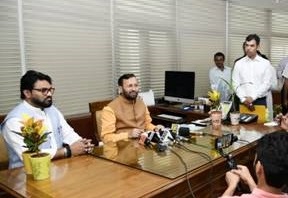Most enterprises today are swiftly exploring the potential of artificial intelligence (AI). Companies operating on archaic models have started to lose customers in the digital age and cannot accelerate their go-to-market strategies. However, according to various industry estimates, about 80% to 85% of AI implementations hit a dead end despite this growing understanding. The secret to successful AI implementations is a comprehensive approach that encompasses the integration of people, processes, and technology.
One of the primary reasons for this high failure rate is businesses’ inability to shortlist the primary growth objectives they wish to achieve. With the enterprise business landscape is becoming complex at an incredible pace, the time for organizations to be on edge for AI is over. No longer can they focus on deploying AI-related tools without building a solid business orientation.
Look for the unique business needs
The growing focus on digital and changing patterns of consumer preferences has compelled businesses to take a deep dive in long-term strategical technology deployment decisions.
Through successful AI-enabled implementations, firms can predict customer behaviors, analyze process anomalies, predict market uncertainties, optimize supply chains, and better manage employee and customer expectations.
Before embarking on the AI journey, enterprises should evaluate the business impact that AI can bring. Today, the advantages of AI have been leveraged for diverse tasks and processes. However, not all operations are fit for an AI use case. There’s no one size fit all methodology for AI-based applications, and the use cases where you intend to build AI must be clearly defined and prioritized.
“IT leaders must adopt a well-thought-out plan for AI adoption. Conversations must be struck with several business leaders (finance, customer success management, business operations, product development, and other management) to identify the relevant business goals tied to the IT domains. This approach will ultimately lead to the selection and prioritization of appropriate use cases,” said Greesh Jairath, Global IT Head at ITC Infotech.
Involve people in your strategy
More than technology, successful AI implementations need full support from the people within an organization. Most of the problems arise due to half-baked AI orientation strategies with the internal staff.
One needs to understand that transformation through AI doesn’t work on its own to solve a problem. You need people to understand and supervise at some level to deploy and analyze the predictive analytical solutions. To ensure that the processes are automated seamlessly, strong executive leadership is also essential. The more informed and engaged is the people inside the organizations, the better are the chances of successful AI adoption within an enterprise.
If you’ve just focused on deploying AI tools and not making any efforts to improve the organization’s cultural impact, the chances of AI failures will be on a higher side. (See: Five key steps to a successful RPA implementation)
Lack of in-house talent
Another challenge that technology leaders face is the acute shortage of qualified in-house talent who can manage end-to-end AI projects and tools. An effective AI model involves a lot of raw data that needs to be arranged systematically and processed for meaningful insights.
By consuming enormous data, the AI-based deep learning algorithms interpret and make decisions for a specific process. However, if you do not have the right people to analyze what data to be fed and understand why specific data is essential for an operation, your entire effort can go in vain.
Besides, CIOs have a tremendous challenge in fine-tuning their internal operations and reducing costs in light of growing ambiguity and uncertainty. In this context, investing significantly in training and building an internal talent pool may not be wise, especially when competitors are ready to poach skilled resources. (See: How will AI impact enterprise ecosystems in 2021?)
Many technology firms such as Google and Microsoft are offering drag and drop no-code AI solutions to tackle this issue. These ready-to-deploy frameworks can help companies develop world-class predictive modeling capabilities without investing immensely to build coding skills internally. These modules can help businesses design and scale AI-based processes and workflows at a large scale.







0 Comments